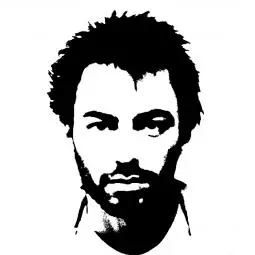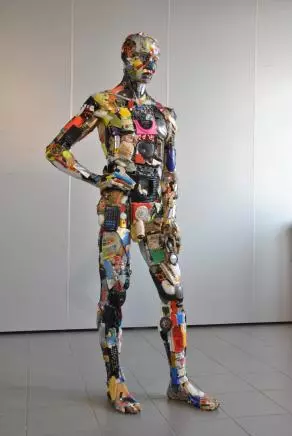Dario Tironi
Artista, Bergamo, Italia, iscritto 15 anni fa
In things by Crash Toys (Dario Tironi and Koji Yoshida), objects, pieces of material and rubbish
have occupied so much of man’s life that they have stolen his structure and assumed his likeness.
A man and a woman site by a cradle, but the sweetness and protection expressed by the family
group are threatened by a noticeable sense of instability and precariousness communicated by
their bodies, pure agglomerations of things. Pieces in precarious equilibrium even though they are
perfectly positioned one next to the other.
In a kind of antithesis, Crash Toys express considerations about man and nature, which seems to
be enclosed in a state of evolution-involution.
These sculptures are assembled portraits of individuals with detail of the face, just as in the works
of Arcimboldo, where the objects metaphorically connected to the subject, because he makes use
of them in his life, de-sublimate the portrait. The volume of waste material enable use to read the
anatomic structure of the bodies, but at the same time they seem to invalidate deeper structure of
the human being, suggesting an obligatory passage to the artificial world in which the residue of
the objects originated. Environment pollution expands its boundaries, goes beyond its physical
limits and, like a virus, attack our synapses, our mental system. Values too, transmitted by the
family and by experience, are affected by pollution and seems more and more precarious, in a
constant search for the right piece to make up what we are each day.
 Share / Save
Share / Save






